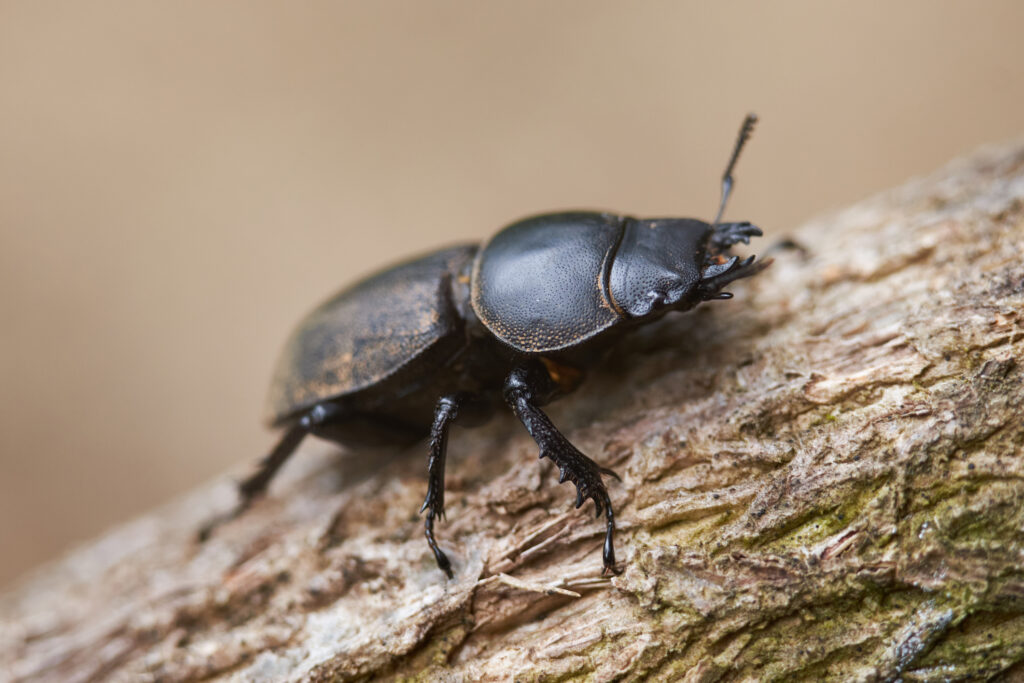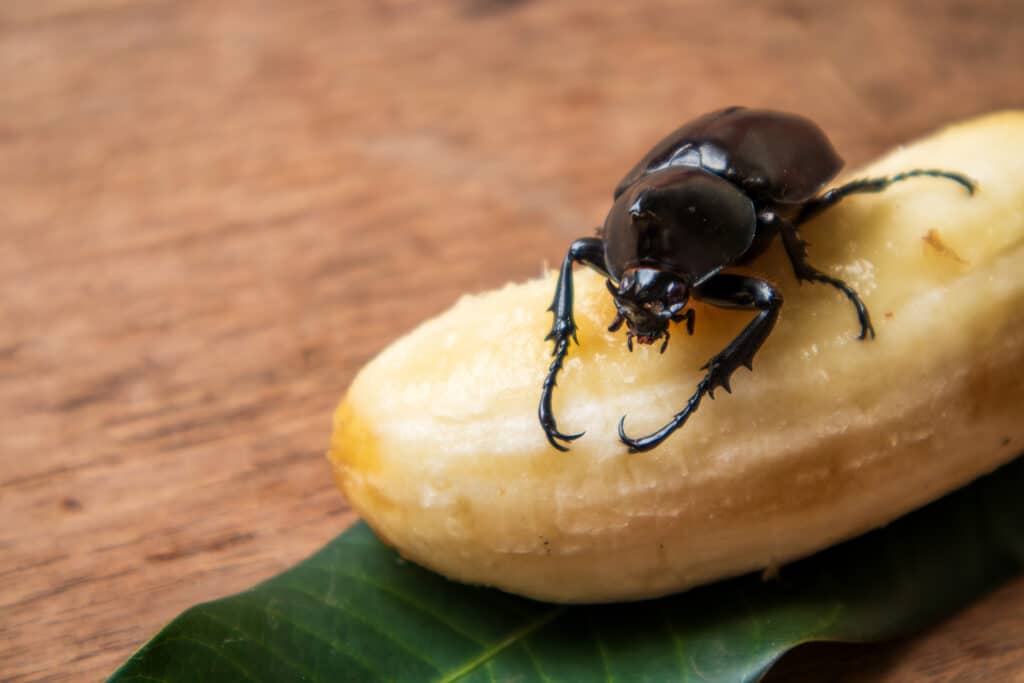
Types of Beetles in Tennessee: Identification Guide
While Tennessee is home to a variety of stinging, biting, and disease-spreading insects, it also hosts less-dangerous but still frustrating pests: beetles. As warm weather returns and days grow longer, beetles can become a constant nuisance in your home. This guide from U.S. Pest Protection will help you identify common beetle invaders in Tennessee homes.
Common Household Beetles in Tennessee
While beetles don’t pose immediate threats to your family’s health, they can quickly become an unpleasant nuisance. Some species may secrete foul-smelling liquids that cause blisters when disturbed. Here are the main types of beetles you might encounter:
Black Ground Beetles
Black ground beetles are among more than 2,000 subspecies of ground beetles found throughout North America. As their name suggests, these beetles are black in color and range from 3 to 12 millimeters in size. Their larvae resemble white grubs and typically live under mulch, gravel, and stone.
While not typically considered dangerous, black ground beetles can release a noxious liquid that creates blisters when threatened and may potentially bite. They’re particularly attracted to piles of mulch and leaves near homes.
Carpet Beetles
Unlike ground beetles, carpet beetles can cause noticeable damage in your home. From fabric, carpet, and furs to food storage, many household items can be ruined by these pests. There are three subspecies of carpet beetles:
- Varied carpet beetles: Small, black, orange, and white-speckled beetles that consume and lay eggs in a variety of materials, including carpet, wool, feathers, and book bindings.
- Furniture carpet beetles: Similarly colored to varied carpet beetles but primarily target upholstered furniture for food and egg-laying.
- Black carpet beetles: Solid black in color and the most destructive carpet beetle species, feeding on various materials and food throughout homes.
Cigarette Beetles
Cigarette beetles received their name for their tendency to target stored tobacco. They also feed on human and pet food. These small, light brown beetles are strong fliers and may play dead when threatened. They have a strong aversion to light and typically emerge on cloudy days or during later hours.
Drugstore Beetles
Drugstore beetles, also known as bread beetles, are drawn to spices, flour, and other dry goods in pantries and cupboards. These tiny brown beetles resemble cigarette beetles in size and appearance and can easily infest improperly stored food. They’re distinguishable by the fine layer of hair on their wings.
Powderpost Beetles
While other beetles are more annoying than alarming, powderpost beetles can cause significant damage to your home. These reddish-brown, ⅛-inch long beetles are notorious for damaging wood throughout homes. From baseboards and window sills to furniture, they can quickly ruin wooden belongings.
A tell-tale sign of powderpost beetles is the tiny, round holes they drill in wood—about the width of pencil lead. There are three subspecies that may invade your home:
- Anobiid powderpost beetles
- Bostrichid powderpost beetles
- Lyctid powderpost beetles

Professional Beetle Identification
If you’re unsure what kind of beetle you’ve found in your home, U.S. Pest Protection experts can determine the species and recommend appropriate treatment. Whether you’ve already spotted beetles or suspect an infestation is beginning, schedule a free inspection and estimate today.
Our professional technicians are trained to identify all common Tennessee beetles and can provide targeted solutions to protect your home from these unwanted invaders.

